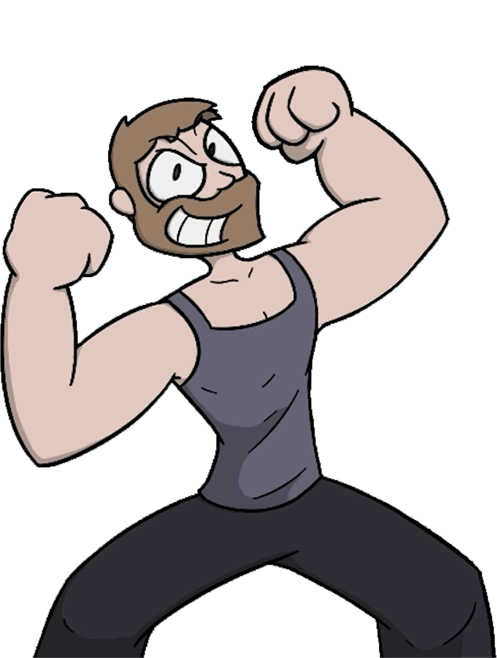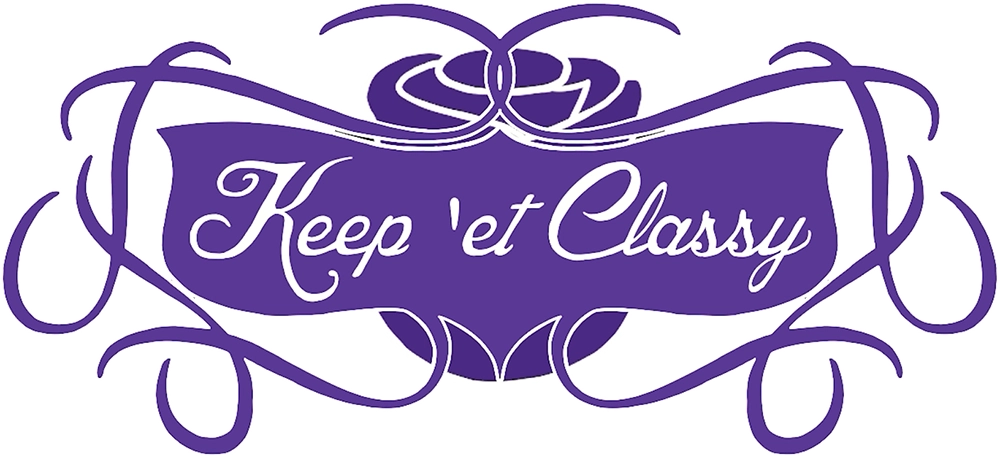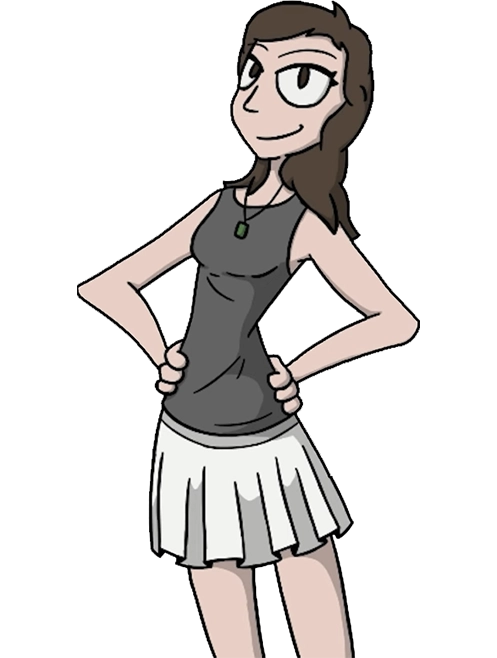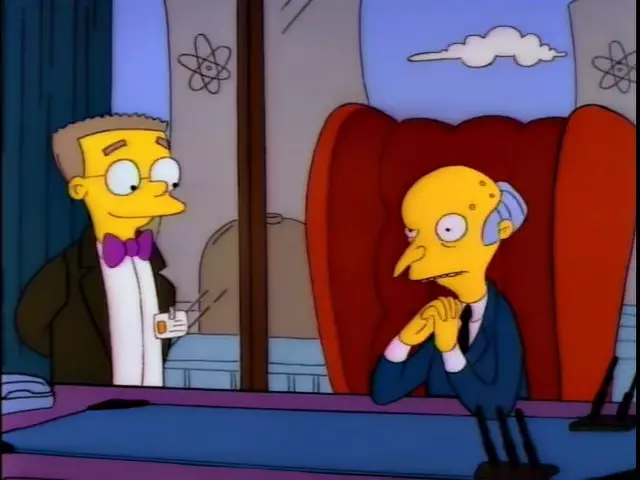My Recollection
Eeny meeny miney mo. Snort snort snort snort snort. Old lima beans and pumpkin mix.
Shame is the new clay from which society is formed. As instinct can teach a spider to weave complex webs without instruction, shame is the invisible master that teaches apes to fashion civilisation from naught. A little can have people sing absurd songs to made-up gods like it’s as important as breathing. Too much overloads an ape, pushes them outside the bubble and creates a new one. In here, shame becomes pride, and the pigs revel in the filth.
A drunk among drunks can afford to revel a little. What do you have to be ashamed of when you’re only the 4th drunkest embarrassment? But I wasn’t always a drunk. Weed is a very different beast. It tickles the paranoia, and this puts a spotlight in the mind of the already anxious. Everyone is watching you. Everyone saw that. You are a tiny thing in a bubble so giant that there is no outside.
This was how I felt looking at what I’d done to a friend’s toilet one morning.
We were in one of Brisbane’s jungle levels, a suburb west of Indooroopilly, where the wealthy had gone to indulge their desire to occupy as much space as possible. Each house is garlanded by a mad thatch of thick Brisbane scrub that was furious at having to share the space. Every incursion of modern architectural design was met with a counter-insurgency of vines, branches, and many-legged atrocities still unknown to science. It was a great place for a stoner’s birthday party.
I didn’t grow up starvation poor, but requests for food while out were always met with reminders that the requested item existed at home. It took years, but stoner me would eventually figure out to just make chocolate cakes when baked, before hitting on the even geniuser idea of just making and eating the mix. Prior to this, my high brain could only dozily dream of huge piles of various salts and sweets. The birthday stoner dreamed of such things too, but she had the money to make it all happen. The evening was a lot of weed, snacks, shitty movies, and beanbags that ate more ass than a millennial.
As a thirty to forty-year-old, I take Metamucil. It’s a fibre supplement that makes my excretions so pleasant they doff their caps politely as I flush. As a teenager, I ate whatever and didn’t think much on it. It turns out that a dinner consisting of Skittles and Doritos does a bit of a number on even a durable young digestive system.
The experience was not unlike a super soaker with the wrong ratio of water to pressure and the result was the most shocking thing to ever come out of me. What was once edible rainbow was now a stucco blast of material so vile it would be deemed offensive in Beelzebub’s hell. The same combination of industrial adhesives that keep a Skittle itself had now bound the demonic brown material to the toilet bowl like they were irregularities in the porcelain. With each flush I could only watch the water move gracefully around it. I stood transfixed, with nothing but a spotlight of shame and scat fetishist water feature for company, as a knocking started on the door. I had to make a decision. I walked by the knocker and said nothing.
I washed my hands in a laundry sink and waited. I splashed my face and waited. I stood there doing nothing and waited. I waited for some exclamation, some scream, some acknowledgement of my crime so I could get the whole thing over with. Nothing happened, and I heard the toilet flush.
I don’t know if dicks have a gag reflex, but sometimes when you’re done peeing, you have to immediately pee again. This happened at the sound of the flush, so my fellow partygoer and I passed once more. It was still there. Like a starry night in an outhouse basement. The urine, my hot acidic ace-in-the-hole, did nothing. Not that I deserved it to. I walked out and, without a hint of thought or malice, said, “Jesus, man, what the fuck did you do in there?”
The person I said this to was not a close friend, but certainly a stoner buddy. I expected pushback, or confusion, something that would align with reality. He walked in and looked as I turned to wash my hands a second time. I turned back and saw that the spotlight of shame had affected him differently.
He was elbow deep in the toilet, his fist a kind of Hellboy gauntlet of paper that he was using to scrub my shit from the rim of the toilet. On sight alone, it was funny, and that covered the fact that my second reason for laughing was my full awareness of the situation.
“What are you doing?” is all I managed in the fit of laughter. I knew, but I had to look surprised.
“I’m cleaning up my act” was his response.
I doubled over, choking on cosmic art.
This is the single wittiest thing anyone could ever say while elbow deep in another person’s faeces. I didn’t say anything, and he never found out. Good thing nobody reads these.
The Episode.
A creative work isn’t an accident. Decisions are made by living minds and the choices they make will structure the work. The first choice will be the work’s medium, and if we compare a book to a TV show, obvious inherent differences will present themselves. Each has a beginning and an end, and each can express a linear narrative, but each has access to things the other doesn’t. The most famous divide being that books can show you the inner lives of its characters.
Whether a third person perspective, first-person perspective, or one that wanders from authorial voice to character voice via free indirect discourse, writing can dip within a character without any effort because it mirrors our own inner monologue. Film’s attempts to copy this via voice-over tend to fail as it clashes with what film can do, which is show. The inner monologue of a character can take up several pages without delaying the action of the scene, whereas a still shot of a character sits awkwardly. That film can’t use the exact methods books use to show the insides of a character does not mean, however, that it can’t at all.
Scrubs is a good modern example of a show that manages it. The first and obvious thing is that the voiceover is the show, it is a foundational element that sets the reality for the series. This foundation exists in two separate forms that both help maintain this: mock omniscient and humorously highlighted. The former exists a bit like authorial voice to the point that the whole show could be considered as existing within a retrospective narrative being related by a future J.D. It bookends the episode, establishes themes, adds characterisation, and acts as narrative bridging for unseen elements. It happens over action, so it avoids the problems inherent to showing you what a character is thinking.
The second type exploits comic tone to turn J.D’s daydreams or comments into jokes whose pauses are either unseen because they cut to fantasy action or something the other characters are aware of. Finally, both of these elements exploit an audience that was ready for more complex combinations of reality and absurdist unreality.
The Simpsons ultimately became known for things like this, and was undoubtedly an influence on shows like Scrubs, but this was something that didn’t occur overnight. Homer Defined is not the earliest example of overt inner lives manifesting on screen – Bart vs Thanksgiving had Bart’s plot-relevant dream sequence and Dead Putting Society reminded us of Homer’s motivation via thought bubbles – but it marks both a step toward making it more casual and also its bizarre misuse.
We see the Simpson family via an omniscient authorial perspective, the frame, and this perspective doesn’t change when it shows us what a character is thinking. We watch a thought bubble appear, and sound effects, like Scrubs’ Whup sound or The Simpsons’ more cartoony strummed harp, exist as signals for the audience. Whup. Now you are watching a dream sequence. Whup. Now you are back. What happened in the Whup dimension didn’t actually happen, but we know this and were never meant to think otherwise.
“Dale woke up” is a sentence written by an omniscient author about Dale. “I woke up” is Dale describing something he did from his perspective. When the author is narrator, we can sometimes doubt what they are telling us because we lose the omniscience. Many a book does this, and, while it can be tough to translate to film, it isn’t impossible. Mostly it works by leveraging off of the audience’s Pavlovian response to film’s mental space signals. Fight Club doesn’t have any Whups. Interactions and moments with Tyler aren’t bookended with The Narrator blinking back to whoever was talking to him, so the audience has no reason to expect unreality.
Homer Defined is about the titular definition of Homer, it’s literally the crux of the plot. By itself, this isn’t a bad choice. A man wondering about how his actions define him, what others think of him, and how he’ll be remembered are all good themes that can be drawn out over an episode like this. The fantasy cutaways to Homer imagining his entries in the dictionary are a perfectly valid means of showing an audience a common idiomatic frame through which these themes express themselves. If you look up “asscrack” in the dictionary, you’ll find a picture of Amber.
The final moments of the episode do something very odd, though, and it serves as a good example of the currently discussed principles. We see a quick series of scenes showing several characters succeed in spite of themselves, before cutting to the established shot of the dictionary definition we’ve been seeing versions of across the episode. It then cuts to the family looking at this definition in an actual dictionary and acknowledging Homer’s place in the language.
When Tyler Durden was revealed to be a figment of The Narrator’s imagination, this was done in a way that recontextualised, rather than clashed with, prior events in the film. At no point did a character point at Tyler and go, “Hey, it’s that fancy dream fella what hides his own selfish goals in pseudo self-help violent zen.” He existed within a head and only that head could see him. The dictionaries, and their definitions, existed within Homer’s head. They were his ideas of how people would see or think about him. He was not being added to a series of swiftly updated English language resources. For this to shift at the end is crossing an established reality barrier, a glaring fault that turns the episode into the kind of lazy shaggy dog joke that later seasons would degenerate into.
Homer Defined is, in many ways, a weak episode. The primary story shares so much time with Bart’s actually more satisfying B story that it frequently feels like the secondary itself. The story doesn’t focus on the better themes of how we are seen to others, how we see ourselves, or how we think we are seen by others, and the wrap-up gag makes the prior dictionary moments, tentpoles of the episode, annoying as they are ultimately pointless joke setups. We’re left with a patchy, unfocused story that stinks of a two-dimensional attempt at deliberately inserting something into the lexicon.
Yours in seeing you next meltdown, Gabriel.
Jokes, lines, and stray thoughts.
I’ve not been talking about the chalkboard or couch gags because it would turn into basic cataloguing, which is already being done and outside the parameters of this series. Simply listing and relating is Wiki work. This one stands out, though, as it uses audio for its punchline, a change to the core idea that only begins to pick up pace far later in the series.
Now I’m paying attention to the opening and it really looks like Milhouse is playing a vuvuzela.

The Space Mutants were a big part of the earlier series, but these gave way to direct cultural references as the show became more confident and such references more commonplace.
The show’s theme audio cue is seldom used giving it a presence that something common would lose. This opening scene with the family is one of no action and no narrative (similar to the pan to a sleeping Bart last ep), it’s like a backdrop to what will happen. The music fills the space left, and somewhat reflexively acknowledges that this is “a sitcom opening”. The high angle opening shot is similarly odd, and, combined with the music, makes the viewer self-aware of their own perspective and place external to the show. This contrasts with low action shots, like Homer using the weed whacker from When Flanders Failed, and these differences are used to guide viewer expectation. When Flanders Failed was about Homer, but also very much about his mind, necessitating the closeness. This episode has a quite even split between Bart and Homer, so a broader focus is needed.
A news outlet saying shit is nice is lost to the modern world. Even the ones divorced from reality are a negative focus.
Ah, sexually inappropriate gifts for kids, a hallmark of the feral.
There’s a little more spread in the students in these early days, don’t see much of Sherri and Terri after a while.
The dog is funny. It looks like it’s angry it’s being used in this fashion. “Wow, brown” fits the moment well as it’s a juxtaposition gag hooked to an existing one of Bart being interested at all.

Otto getting wrecked at a child’s party is always funny. I don’t think I ever did that. Nope, wait, I have, but they were related to me and I had been forced to go.
Bart genuinely sad is nice to see, not just because I enjoy seeing him suffer but because it brings him out as an actual character.
The shot of the whole bus cheering as Bart slumps is the perfect encapsulation of childhood exclusion.

I, too, would love to watch employees on various security cameras. I have a non-sexual interest in voyeurism.
Class allegiance has always been tough for me. On the one hand, eat the billionaire ticks that drain our planet, on the other hand, the underclasses are boorish, hungover drones.
I am a single man who owns a cat, owning a terrier is gayer.
Juxtaposition scenes like Burns/Homer discussing the movie are great ways to save time when it’s a premium.
Otto going to Mexico with the school bus on a Monday is the kind of sloppy detail that makes for a decent gag.
Similar to the juxtaposition point, having a conversation topic continue across interstitial scenes like Burns on the movie cut with Homer at his desk has a natural feel to it, like they and their topic exist outside the artificial confines of the scene. It’s the opposite of when a character turns on a radio exactly at the right moment to hear useful information.
When he’s right, he’s right. Vilma Banky is a fucking stunner.

Deepening of the “Simpson, eh?” part of the show.
The photo of Homer with trace hair is always a chuckle.
Project Bootstrap
Homeric stupidity is safest in a bubble, him being this stupid contrasted against something so serious makes the joke stupidity dangerous and real. Family Guy just cut through it and made Peter legitimately retarded. An inelegant solution, but a solution.
Lovitz as the soap boss. Most of the comedian/voice actor guests would do the main voice and a side voice.
The Homer hair gag is backed up by the solid callback of the Burns hair gag.
Burns wearing Smithers’ radiation suit is a simple joke but always made me wonder where his actually went.
“Unrequested fission surplus” hahaha.
If all it takes is an operator pressing a button, it would probably be automatic.
It’s fortunate that this is a fairly forgettable episode from an early season because they completely blow the Gay Smithers joke here. He literally tells Burns he loves him, Burns reacts to it exactly like it’s an awkward confession of gay love, and Smithers offers to kiss Burns on the ass. Later versions of this gag will either have Smithers talk to himself about it, mutter it out of earshot, or have Burns not understand the intent of the communication. The walkback on this borders on retcon.
Barney with idiot zen.
The elderly switching to Wheel of Fortune is funny, particularly when one of the few audible lines from Brockman regarding the meltdown involves the words “roving bands.”
Early seasons were rougher, but there was a lot of work put into the lighting. Homer’s scenes at his console are wonderfully colourful and create a fantastic scene.

007 being a reference to Goldfinger.
The return to order jokes are mostly missable crap but the rats piling back into the plant is a goodun.
Comic Book Guy selling shirts is very on brand.
“This reporter promises to be more trusting and less vigilant in the future”
The story with Bart and Milhouse would have been better saved as an A story. It’s a genuine piece of childhood angst that would have allowed for a lot more of the “Bart as a real 10-year-old” that the show needed.
Homer drinking soup from the bowl with both hands is funny because there is no visible spoon. He’s not down to the last bits, he just drinks soup that way. It dances between a joke at how he eats or one of those family-specific traits, like a weird term for a grandparent.
Magic Johnson before he became synonymous with HIV.
A lot of good lighting here. Bart and Lisa in front of the TV, Moes earlier. The dark in an animated show can give things a surreal, dreamlike quality.



Marge’s eyes are weirdly small here.

“Look, I get enough admiration and respect at work. I don’t need it here at home.”
Lisa’s fawning adoration is lazy and indicative the show didn’t know what to do with her this episode.
The walkie-talkies we had as kids had a range that was so low you could never tell if you were hearing your friend through the radio or just hearing them.
“He’ll never know who did it”
I can’t find what “eanae-eharatou-nah-duleve” means, but I’m working on the written form provided by Frinkiac, which may well be inaccurate. It sounds possibly Tibetan, but I’m getting Turkish and Hawaiian on Google Translate.
“Employee of the month isn’t all hams and plaques”
“This man has no love for his power plant!”
Bart not getting Marge’s concern re the Monopoly hotels is good, funny and true to a child’s character.
The great thing about throwing rocks at a hornet’s nest is that there’s a perfectly acceptable adult version of that, burning a nest down. It’s as dangerous and fun, but it’s also kind of a one and done activity.
The director’s commentary mentions that it’s odd that Milhouse’s parents look identical. I maintain he’s an incest baby, Kirk and Luann are probably cousins.
Marge’s speech is, like a lot of this sub-plot, is genuine. There’s no secondary complication to talking to Luann, it’s a heartfelt plea from one mother to another and it works because there is truth to it, in spite of Luann’s valid worries.
Milhouse on the seesaw by himself is a classic.

Starting a scene at the tail end of a weird story is a classic narrative tool that can enhance whatever you want the story to do by digging in to the human habit of running in to an unfinished idea’s space and furnishing it with all sorts of madness. Here, it’s funny. Nobody has ever said that carnies are good honest people.

Lisa’s profile of Homer manifests again later, as an actual story. Here, it’s just a vestigial component of Homer’s anaemic story.
Barney’s story leverages off of an unknown, where he was giving a speech, to deliver the serious, that it was a trial, at the end as a surprise. Omission jokes are great, and easy.
The Shelbyville plant existing at all is pretty stupid. There would be no earthly reason for two nuclear plants to exist that closely. This is compounded by it having the same meltdown while Homer is there. Convenience is a near inescapable element of narrative, and this format particularly, but this stretches it way too far. Is Aristotle’s plant also so poorly run that nobody there was able to deal with it? There were easier ways to have him outed as a fraud.
Rainier Wolfcastle is in the Shelbyville audience, along with a variety of other oddities. Look at the guy with the gaping or non-existent mouth.

Laugh and a Half makes fun of Wiggum, but what was that other cop doing? Damn mainstream media.
The Simpsons has added so many words or phrases to English that this attempt to do it deliberately is fucking grotesque. If you’re cool, be cool, don’t scream that other people have to see you as such.
The penultimate shot is a goodun, Magic literally came out 2-3 weeks after this episode aired to tell people he had HIV from rawdoggin' god knows how many women.






7 replies to Homer Defined
Alexander on 24th October 201924 Oct 19 said:
Don't worry Gabriel, I wait and read all of these very intently. In fact this one was published on my birthday which is a nice bonus. Why I'm telling this to a strange Australian bloke I've never met yet pay $15 to every month is beyond me, but such is the magic of the Internet.
Gabriel on 24th October 201924 Oct 19 said:
Tell your friends, I'm poor and this is, sigh, my job.
BlankUser115 on 25th October 201925 Oct 19 said:
Love ya Gabe. I and many others appreciate your efforts.
Gabriel on 25th October 201925 Oct 19 said:
Tell your friends, or else
Magnumweight on 31st October 201931 Oct 19 said:
I've told everyone that'll listen about you guys and they both enjoyed it
Magnumweight on 21st October 201921 Oct 19 said:
Another gag I enjoy from the bar scene was Barney telling Lisa he followed his dad to a lot of bars.
I'll always remember this episode for Millhouse alone on the teeter totter
Gabriel on 21st October 201921 Oct 19 said:
Sad Milhouse is a comedic gold mine.
Comment on Homer Defined
To reply, please Log in